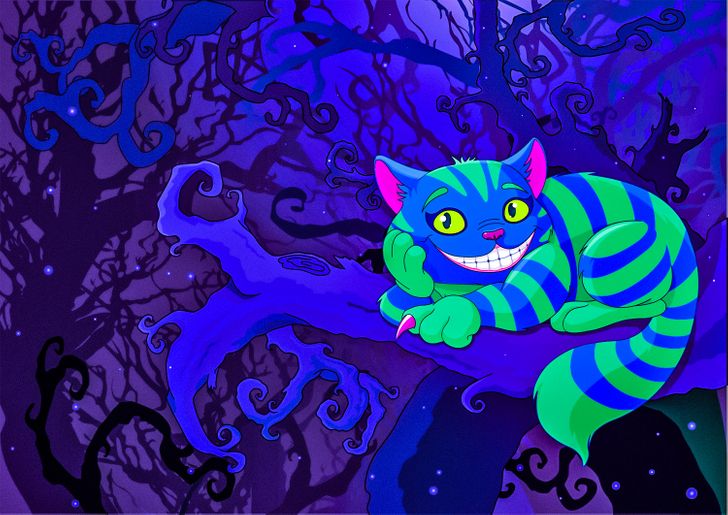7 Ways Our Brain Can Trick Us
Do you also have a favorite cup that makes tea tastier? And do you prefer taking things with your right hand (if you are a righty)? You have probably never thought that even the most ordinary actions are not just habits, but the tricks of our mind. If you want to know about the origin of these phenomena and also why you like to procrastinate before important events, read our article. All the answers are here.
Bright Side found out about the most interesting paradoxes of perception that will make you wonder about a lot of things.
Our eyes can change the taste of food
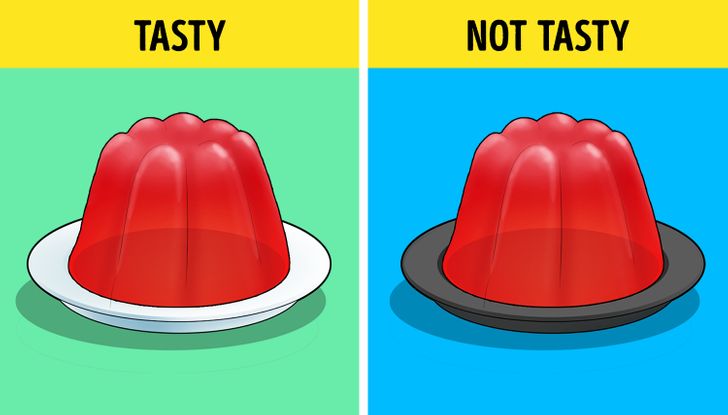
Studies show that the color of dishes and plates can change the taste and the smell of food. For example, hot chocolate seems tastier in an orange or a cream-colored cup and the taste of strawberry gelatin is richer when it is served on a white plate, not on a dark one. This is the reason why many people have favorite cups and plates. Here are some other interesting facts about taste perception:
- Yellow plates make lemons smell stronger.
- Cold drinks are better served in cups of cooler colors.
- Food becomes sweeter if it is served on a pink plate.
The right hand seems to be longer than the left one
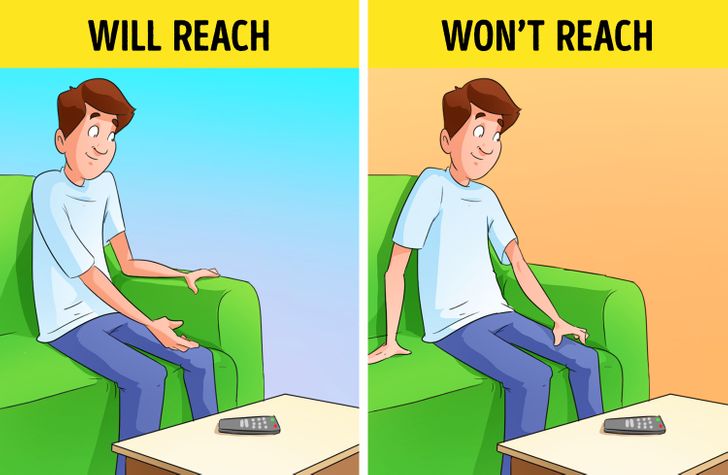
Studies show that the right hand seems longer than the left. This is due to the illusion that makes it seem like you can reach an object faster with your right hand (if you are a righty). However, this is only true for righties, left-handed people don’t notice the difference.
We think about ourselves in the future in the same way we do about a person we don’t know.
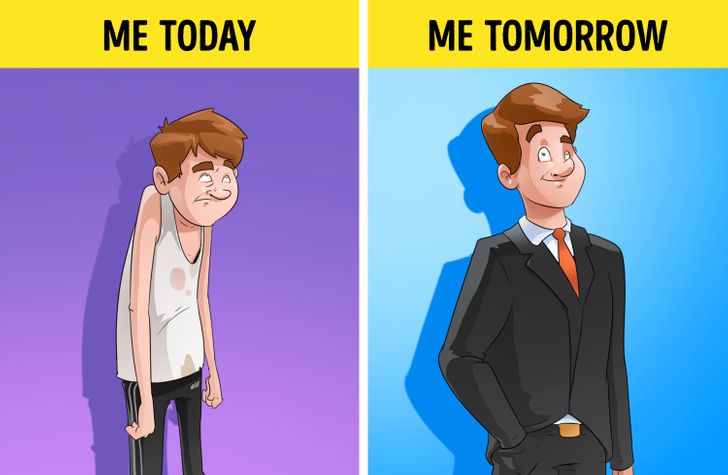
You probably know this feeling: tomorrow is an important day you need to prepare for and you are watching an episode of your favorite show or just walking around your apartment drinking tea. Why do we do this? The thing is, when we think about our future selves, our brain imagines a person we don’t know. The brain thinks that it will be someone else who’ll be dealing with the problems that will appear because of today’s procrastination. And this stranger will be able to handle the situation. In any case, it won’t be you. This is why people often have very unhealthy lifestyles, do immoral things, and postpone their treatments.
Our brain doesn’t see even the most obvious changes.

This phenomenon has a name — change blindness. This is the brain’s defense mechanism that allows it to not process all the information that it’s constantly receiving. For example, if you look at a photo for a little while and then get distracted, and then look at the picture again, you might not notice even the most obvious changes.
Scientists did an experiment: students went to job interviews and they were greeted by a person that helped them fill out all the necessary forms and explained what to do next. The students didn’t know that there was another person hiding under the desk and at some point, he would replace the first one. The one that was hiding didn’t look anything like the first one and they were even wearing different clothes, but the students didn’t notice any difference. The experiment was done many times and the results were always the same. Just imagine how many things we don’t even notice every day!
Our successes are only reasons for an indulgence
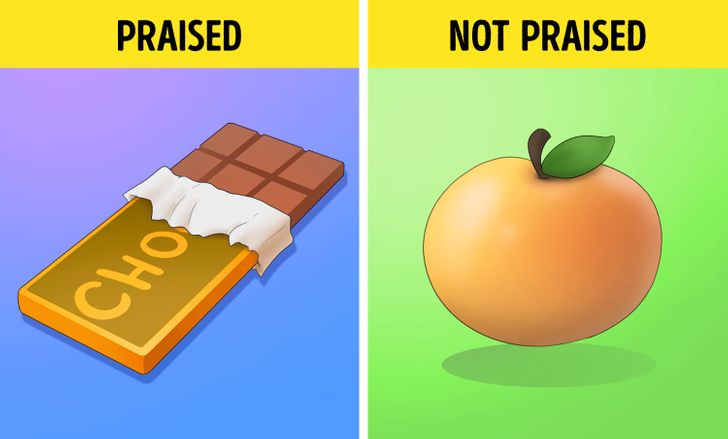
For another study, 2 groups of people were gathered. The people had been dieting for a long time and had already achieved some significant results. The first group was praised and the achievements of the second group were ignored. After that, all of them were offered a treat of their choice: an apple or a chocolate bar. 85% of those who were praised chose the chocolate and in the second group, only 58% of people chose the chocolate.
Our brain likes to find excuses for indulgence, which can lead to failure. Imagine that people with serious addiction are in this situation: when you praise them, they are very likely to return to what they had been trying to quit. The brain will always prefer a way less energy-consuming process or activity, even if it leads to a decrease in the duration of its life.
The lower your self-esteem is, the more attractive other people look.
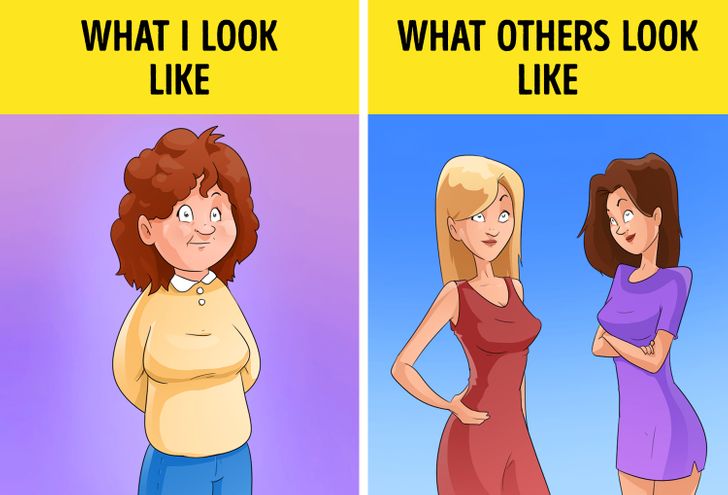
A simple experiment was conducted: people were shown 3 photos of celebrities. One of the photos was real, the second photo was edited to make the person look fatter and the third was altered to make them look slimmer. The participants were then asked to find the real picture. The results were quite interesting: if a person (the gender doesn’t matter) was satisfied with their own body and didn’t have any problems, they could easily tell the original photo from the fake one. If a person was worried over their own extra weight or about being too slim, they choose the photo that was the opposite of their problem. The same experiment can be conducted with any other problems. The conclusion is that reality, through our eyes, is distorted depending on our own insecurities, because we think that everyone else doesn’t have this problem.
The brain can’t tell the difference between reality and fantasy.
The brain has the same response to what you are thinking about and what you are doing, and there are several things that prove this idea:
- Scientists did an experiment where one group of people was asked to play the piano and the other group was asked to imagine that they were playing the piano. The reaction of the brains of the 2 groups were the same.
- In another experiment, scientists asked a group of people to imagine invisible food and eat it. The participants chewed it and swallowed the pieces of food that they imagined. The result was that they felt way less hungry.
- Our thoughts and how we feel are connected. The chemical reactions in the body happen no matter whether the situation is real or imaginary. For example, if you worry too much all the time, you can increase the level of cortisol (the stress hormone) in your blood. The good news is that the same principle works with serotonin (the hormone of happiness). So, if you imagine that you are happy, you can really improve how you feel.
Share your thoughts on the phenomena described in this article in the comment section below!
Comments
wow, this is fascinating!
I have been regular member of bright side as I find these videos & articles extremely encouraging. I rarely question their genuineness as they are from experts & I am still master of all & Jack of none. In above article, while reading, I felt that word "placibo effect" would have been better.
Great
We all eat through our eyes first so this makes sense. Thanks for sharing
Totally. I studied cooking once and my teachers were really annoying about this. Cooks have to make their meals looks attractive somehow so the customers eat everything
I can't imagine that but it's true. If you think of it, you would eat something that doesn't look good, you know...
Yup, even the "ugly" kind of food can always look good ?
thats me right there
Related Reads
16 Essential Secrets of Body Language
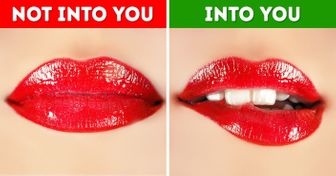
9 Myths Romantic Movies Made Us Believe, and How They Can Damage Our Relationships
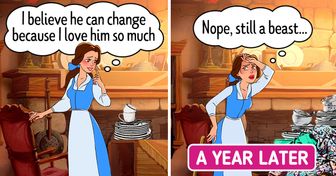
20 Photos Proving That Angle and Perspective Are Everything in This World

10+ Facts They Forgot to Mention in School Books

20 People Who Saw Bizzare Things at Someone’s House and Are Still Thinking About Them Years Later

She Won Miss Universe Many Years Ago and at 76 Still Looks 30
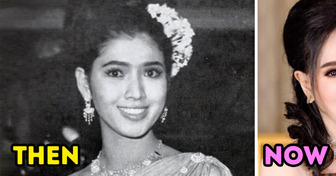
19 Women Who Decided Not to Follow Beauty Standards and Embraced Their Gray Hair
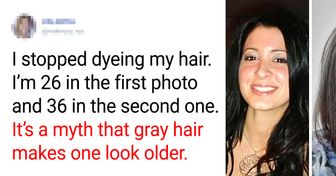
9 Manicure Trends That Are Dominating This Summer 2025
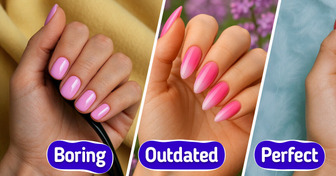
I Lost My Baby Because of My MIL, and She Didn't Care
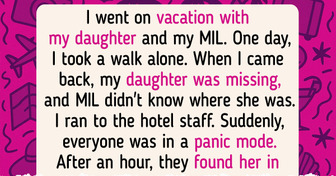
I Refuse to Accomodate My MIL’s Insane Food Requests

20 Crazy Wedding Stories Guests Won’t Soon Forget

17 Kind People Who Just Made Other People's Life Better

